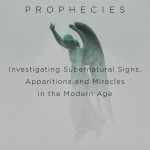Pat McNamara, whose column “In Ages Past” runs every Tuesday here at Patheos, has an interesting piece up today on Scandals and the Church; a question and answer from 1929:
“Will you not admit that many of the leaders of your Church— her Popes, Bishops and priests— have been wicked men? How can you call such a Church holy?”
The Church remains holy, no matter how many of her leaders prove faithless to the Gospel they preach, for these men are cut off from the Church’s life by their sins, which can never be traced to her teachings or laws. Would you call an apple tree bad, because you discovered some rotten apples lying on the ground beneath it? No, you judge the tree by the ripening or ripe apples on its boughs. Wicked churchmen will one day have to render a strict account to Almighty God for their stewardship, for as Christ said: “Unto whomsoever much is given, of him much will be required” (Luke xii. 16).
Read the rest here
Striking a similar note, Deacon Greg Kandra looks at how Padre Pio responded to an untrue accusation made about him:
After Vespers, Padre Raffaele summoned Pio to the friary parlor and read the decree received on June 11, 1931, without comment:
“Padre Pio is to be stripped of all faculties of his priestly ministry except the faculty to celebrate the Holy Mass, which he may continue to do provided it is done in private, within the walls of the friary, in the inner chapel, and not publicy in church”.
To that, Ruffin explains St. Pio’s initial reaction:
“God’s will be done,”…then he covered his eyes with his hands, lowered his head, and murmured, “The will of the authorities is the will of God.”
While this caused immense suffering for Pio, which was confided privately to his friend and former teacher, Padre Agostino, he did not complain or make objections, especially in a public way. Padre Agostino asked him how he spent his time and Pio replied, “I pray and I study as much as I can, and then I annoy my Brothers.” Pio went on to elaborate that he jokes with his brothers. With regards to study, he spent much time in Sacred Scripture, and he especially studied the Fathers of the Church.
Kandra borrowed that from Diane at the Te Deum Blog, who found the Pio story while covering the suppression of the Intercessors of the Lamb, another recent “scandal.”
The church will always have scandals and accusations brewing, and investigations being undertaken. Where there is great holiness, evil is always nearby. The church itself is holy, but the people within it are all-too-susceptible to their brokenness, which is why we keep our eyes on Christ, first, and understand that even as Jesus hung on the cross, he had a thief on either side – one who repented and joined him in paradise, and one who did not, and was not.
T’was ever thus! What we see in the stories of St. Pio, and the Nadine are stories where accusations were made, investigations were launched, and the parties involved dealt with according to what was found to be true or false. Has the church always acted as promptly and correctly on delicate matters? Sadly — greviously — no. But in these cases, she did.
The thing is — as Pat McNamara’s piece argues — no matter how many whispers are hissed or accusations are made, the number of “bad” priests or religious in the face of 2000 years of consecrated and vowed service of men and women has been very small. But of course, every exception helps to create a perception about the whole.
Speaking of which, today in my emailbox – an offer for a review copy of this:
“As a Roman Catholic priest, I was forced to decide between a supernatural love—in a ministry serving the Lord—and natural love—in a forbidden relationship with a woman. Both were blessings given to me by the same God, the source of all love. This was my dilemma.”—Father Albert Cutie
I think what always bothered me about the Cutie story was not that he fell in love — these things happen — but that he only admitted it after being “caught” by a photographer. He was willing to go on presenting himself as a priest, celebrating the sacraments, wearing priestly garb, etc, and in effect lying to his followers, his bishop – everyone; he was content to continue to receive the love, the confidences of people who believed in him, until his hand was forced. I find that hard to look past. It’s one thing to find you can’t live your vows; it’s another to engage in deception once you’ve figured that out.
The publisher’s notes make it clear this is going to be a condemnation of the mean Catholic church for “forcing” Cutie to choose. That’s nonsense. There was no forcing of choice. The choices were always his to make, and the vows were his to keep or break. When he broke them, the choice was his to come clean about it or not.
Not sure if I will take up the free book offer.
UPDATE:
Fr. Longenecker asks a question I’ve wondered about, too: Do Beautiful Churches help Produce Vocations? Perhaps they help to illustrate the whole concept of “something greater than oneself.”















